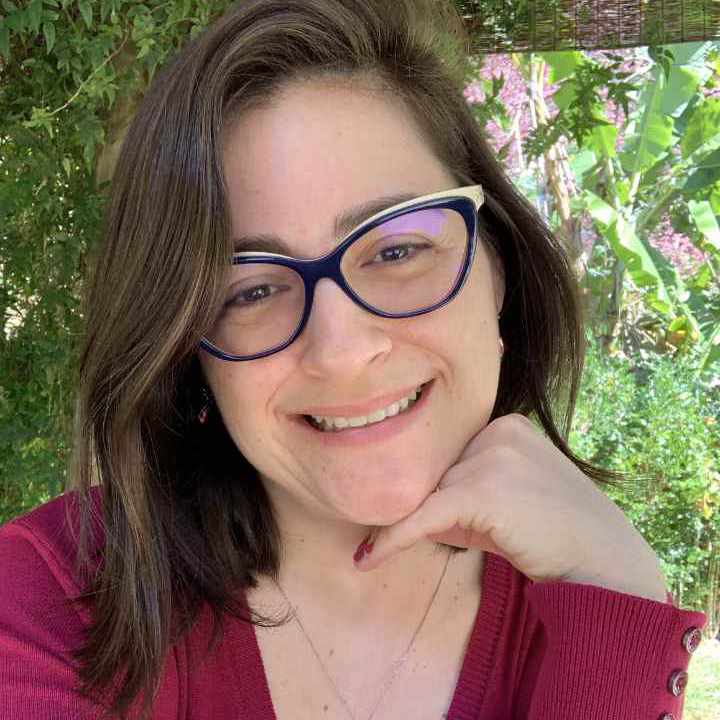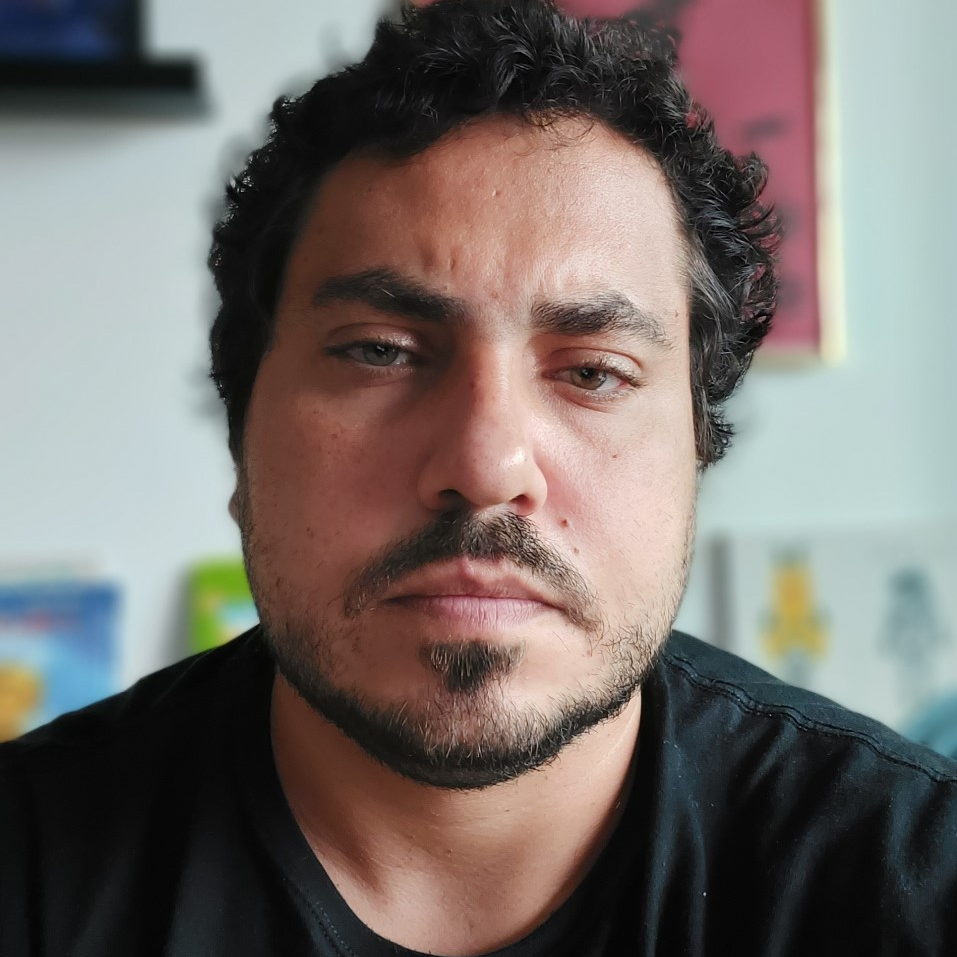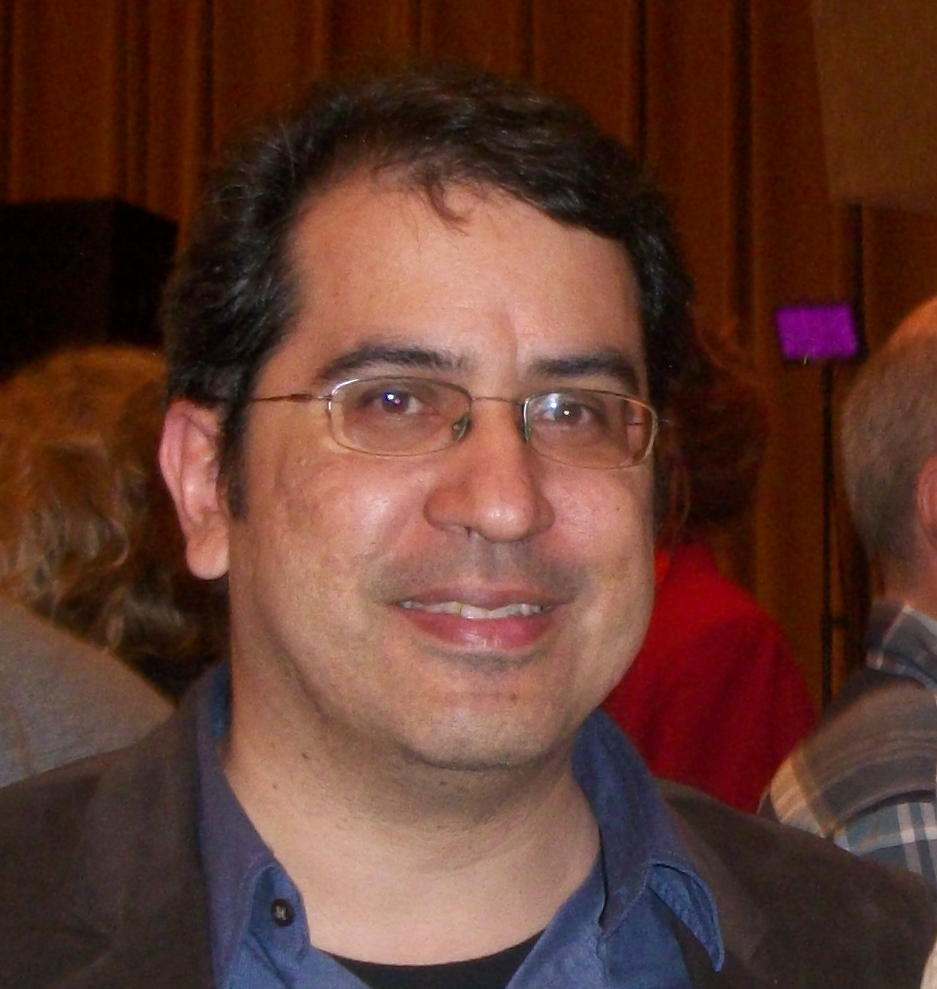 Tamara Rangel Vieira has a bachelor’s degree (2004) in History from the Universidade Federal Fluminense and a master’s (2007) and PhD (2012) in the History of the Sciences and Health, both from PPGHCS. She conducted doctoral research at the Center for Human and Social Sciences at the Consejo Superior de Investigaciones Cientificas (CCHS/CSIC) in Madrid in 2011 and was a postdoctoral fellow at the Casa de Oswaldo Cruz with a postdoctoral PAPD grant from the Rio de Janeiro state funding agency, FAPERJ. She is a researcher with the Casa de Oswaldo Cruz Research Department and professor with PPGHCS. Her research and teaching interests include the twentieth-century history of medicine and public health in Brazil; the institutionalization of the sciences in Brazil in the twentieth century; nation-region relations; and Brazilian social thought.
Tamara Rangel Vieira has a bachelor’s degree (2004) in History from the Universidade Federal Fluminense and a master’s (2007) and PhD (2012) in the History of the Sciences and Health, both from PPGHCS. She conducted doctoral research at the Center for Human and Social Sciences at the Consejo Superior de Investigaciones Cientificas (CCHS/CSIC) in Madrid in 2011 and was a postdoctoral fellow at the Casa de Oswaldo Cruz with a postdoctoral PAPD grant from the Rio de Janeiro state funding agency, FAPERJ. She is a researcher with the Casa de Oswaldo Cruz Research Department and professor with PPGHCS. Her research and teaching interests include the twentieth-century history of medicine and public health in Brazil; the institutionalization of the sciences in Brazil in the twentieth century; nation-region relations; and Brazilian social thought.
Email: This email address is being protected from spambots. You need JavaScript enabled to view it.
Publicações de destaque:
LIMA, Nísia Trindade ; Rangel Vieira, Tamara . The Sertão and Its Representations. Oxford Research Encyclopedia of Latin American History. 1ed.: Oxford University Press, 2020, v. , p. 1-22.
 Rômulo de Paula Andrade has a bachelor’s degree (2004) in History from the Universidade do Estado do Rio de Janeiro and a master’s and PhD in the History of the Sciences and Health, both from PPGHCS. He has been a researcherwith the Casa de Oswaldo Cruz Research Department and professor with PPGHCS since January 2015. His research interests include the twentieth-century history of public health; environmental history; the history of international relations; the teaching of the history of science; relations between health and the environment; the history of Brazilian social thought; history and image; and discussions surrounding major Brazilian development projects in the twentieth century. He is currently investigating the history of emerging diseases and their relationship to international development agencies and research support programs.
Rômulo de Paula Andrade has a bachelor’s degree (2004) in History from the Universidade do Estado do Rio de Janeiro and a master’s and PhD in the History of the Sciences and Health, both from PPGHCS. He has been a researcherwith the Casa de Oswaldo Cruz Research Department and professor with PPGHCS since January 2015. His research interests include the twentieth-century history of public health; environmental history; the history of international relations; the teaching of the history of science; relations between health and the environment; the history of Brazilian social thought; history and image; and discussions surrounding major Brazilian development projects in the twentieth century. He is currently investigating the history of emerging diseases and their relationship to international development agencies and research support programs.
E-mail: This email address is being protected from spambots. You need JavaScript enabled to view it.
Site: https://fiocruz.academia.edu/RomuloAndrade
Selected Publications:
ANDRADE, Rômulo de Paula. Contribuições para um debate: a antropologia do desenvolvimento e a valorização econômica da Amazônia (1951-1955).Cadernos do Desenvolvimento, v. 10, p. 1-72, 2015.
ANDRADE, Rômulo de Paula. O pobre solo do celeiro do mundo: desenvolvimento florestal e combate à fome na Amazônia. Estudos Históricos (Rio de Janeiro), v. 28, p. 285-304, 2015.
ANDRADE, Rômulo de Paula. "Conquistar a terra, dominar a água, sujeitar a floresta": Getúlio Vargas e a revista "Cultura Política" redescobrem a Amazônia (1940-1941). Boletim do Museu Paraense Emílio Goeldi. Ciências Humanas, v. 5, p. 453-468, 2010.
ANDRADE, Rômulo de Paula; HOCHMAN, Gilberto. O Plano de Saneamento da Amazônia. História, Ciências, Saúde-Manguinhos (Impresso), v. 14, p. 257-277, 2007.
ANDRADE, Rômulo de Paula; LANA, Vanessa. Médicos, viagens e intercâmbio científico na institucionalização do combate ao câncer no Brasil (1941-1945). História, Ciências, Saúde-Manguinhos (Impresso), v. 17, p. 109-126, 2010.
ANDRADE, Rômulo de Paula; HOCHMAN, Gilberto. A civilização da mandioca sob os cuidados da nutrição: escritos sobre a alimentação da Amazônia. In: Sandro Dutra Silva; Dominichi Miranda de Sá; Magali Romero Sá. (Org.). Vastos Sertões: História e Ciência na Literatura e na Natureza. 1ªed. Rio de Janeiro: Mauad X, 2015, p. 213-228.

André Felipe Cândido da Silva holds two bachelor’s degrees, one in the Biological Sciences (Microbiology and Immunology), earned in 2003 from the Universidade Federal do Rio de Janeiro, and one in History, earned in 2009 from the Universidade do Estado do Rio de Janeiro. In 2006, he received his master’s in the History of the Sciences and Health from PPGHCS, where he obtained his PhD in the same field in 2011, with a dissertation on the scientific career of Henrique da Rocha Lima and scientific relations between Brazil and Germany. He was a postdoctoral fellow at the Department of History of the Universidade de São Paulo. He is a researcher with the Casa de Oswaldo Cruz Research Department, professor with PPGHCS, and science co-editor for the journal História, Ciências, Saúde—Manguinhos. His research and teaching interests include the history of the sciences; transnational and global history; the history of tropical medicine; science and transnational cultural relations in the twentieth century; the history of diseases; and health and the environment. He is currently investigating scientific relations between Brazil and Germany and the circulation of knowledge; twentieth-century scientific expeditions to Brazil; and the ties between agriculture, disease, and ecology.
Email: This email address is being protected from spambots. You need JavaScript enabled to view it.
Selected Publications:
SILVA, André Felipe Cândido da; BENCHIMOL, Jaime Larry. Malaria and quinine resistance: the circulation of a medical and scientific issue between Brazil and Germany (1907-1919). Medical History, v. 58, n. 1, p. 1-26, 2014.
SILVA, André Felipe Cândido da. “The Scientist-Diplomat”: Henrique da Rocha Lima and the Germany-Brazil relations (1919-1927). Jahrbuch für Geschichte Lateinamerikas, Köln/ Weimar, Wien, Bd 50, p. 261-, 2013.
SILVA, André Felipe Cândido da. A diplomacia das cátedras: a política cultural externa alemã e o ensino superior paulista – os casos da USP e da Escola Paulista de Medicina. Revista História (São Paulo), v. 32, n. 1, p. 401-431, 2013.
SÁ, Magali Romero; SILVA, André Felipe Cândido da. La Revista Medica de Hamburgo y la Revista Medica Germano-Ibero-Americana: diseminación de la medicina germánica en España y América Latina (1920-1933). Asclepio (Madrid), v. LXII, p. 7-34, 2010.
BENCHIMOL, Jaime Larry & SILVA, André Felipe Cândido da. Ferrovias, doenças e medicina tropical no Brasil da Primeira República. História, Ciências, Saúde - Manguinhos, Rio de Janeiro, v. 15, n. 3, pp. 719-762, 2008.
SILVA, André Felipe Cândido da. A campanha contra a broca-do-café em São Paulo. (The campaign against the coffee berry borer in São Paulo) História, Ciências, Saúde - Manguinhos, Rio de Janeiro, v. 13, n. 4, p. 957-993, 2006.
 Carlos Henrique Assunção Paiva has a bachelor’s degree and teaching license in History from the Universidade do Estado do Rio de Janeiro (UERJ) and a master’s and PhD in Collective Health from the UERJ Institute of Social Medicine. He serves as coordinator of the History and Health Observatory, which is part of the Casa de Oswaldo Cruz Research Department, where he is a researcher. He is also an associate researcher with the Center for Bioethics and Diplomacy Studies in Health (NETHIS), a joint endeavor of Fiocruz, the Universidade de Brasília, and PAHO. He is a member of the Work Group on Labor and Education in Health within the Brazilian Association of Collective Health(ABRASCO). He has published papers on the history of public health in Brazil, public health reform and the Unified Health System (SUS), international health and health diplomacy, and the training of health personnel in Brazil.
Carlos Henrique Assunção Paiva has a bachelor’s degree and teaching license in History from the Universidade do Estado do Rio de Janeiro (UERJ) and a master’s and PhD in Collective Health from the UERJ Institute of Social Medicine. He serves as coordinator of the History and Health Observatory, which is part of the Casa de Oswaldo Cruz Research Department, where he is a researcher. He is also an associate researcher with the Center for Bioethics and Diplomacy Studies in Health (NETHIS), a joint endeavor of Fiocruz, the Universidade de Brasília, and PAHO. He is a member of the Work Group on Labor and Education in Health within the Brazilian Association of Collective Health(ABRASCO). He has published papers on the history of public health in Brazil, public health reform and the Unified Health System (SUS), international health and health diplomacy, and the training of health personnel in Brazil.
Email: This email address is being protected from spambots. You need JavaScript enabled to view it.
Selected Publications:
LIMA, N. T.; SANTANA, J. P.; PAIVA, Carlos Henrique Assuncao (Orgs.). Saúde Coletiva: a Abrasco em 35 anos de História. 1. ed. Rio de Janeiro: Fiocruz, 2015. 324p.
PAIVA, Carlos Henrique Assunção; Santana, José Paranaguá de (Org.). Dossiê: Bioética e Diplomacia em Saúde. História, Ciência, Saúde, Manguinhos. 2015. v. 22. 320p.
PAIVA, Carlos Henrique Assunção; Teixeira, Luiz Antônio. Reforma sanitária e a criação do Sistema Único de Saúde: notas sobre contextos e autores. História, Ciências, Saúde-Manguinhos, v. 21, p. 15-35, 2014.
PAIVA, Carlos Henrique Assunção. A burocracia no Brasil: as bases da administração pública nacional em perspectiva histórica (1920-1945). História (UNESP), v. 28, p. 775-796, 2010.
ALVES, Fernando Antônio Pires; PAIVA, Carlos Henrique Assunção. Recursos Críticos. História da cooperação técnica Opas-Brasil em Recursos Humanos para a Saúde (1975-1988). Rio de Janeiro: Fiocruz, 2006 [online Scielo Livros]
Pires-Alves, Fernando; Paiva, Carlos Henrique Assunção; HOCHMAN, Gilberto. História, saúde e seus trabalhadores: da agenda internacional às políticas brasileiras. Ciência & Saúde Coletiva, v. 13, p. 819-829, 2008.

Kaori Kodama has a bachelor’s degree (1997) in History from the Universidade Federal Fluminense and a master’s (1999) and PhD (2005) in the Social History of Culture from the Pontifícia Universidade Católica of Rio de Janeiro. Her dissertation explored indigenous ethnographies produced by the Brazilian Historical and Geographical Institute in the 1840s. She is a researcher with the Casa de Oswaldo Cruz Research Department and professor with PPGHCS. Her research interests include the history of the sciences in Brazil, the history and historiography of Imperial Brazil, and the history of Japanese immigration. She is currently investigating the cholera epidemic in nineteenth-century Rio de Janeiro; slavery and health; the concept of race; and nineteenth-century medical discourse.
Email: This email address is being protected from spambots. You need JavaScript enabled to view it.
Selected Publications:
KODAMA, Kaori. Epidemias e tráfico: os discursos médicos e debates na imprensa sobre a febre amarela (1849-1850). In: Franco, Sebastião Pimentel; Nascimento, Dilene Raimundo; Maciel, Ethel Leonor Noia. (Org.). Uma história brasileira das doenças. 1ed. Belo Horizonte: Fino Traço, 2013, v. 4, p. 35-49.
KODAMA, Kaori; SA, M. R.. Saúde, imigração e circulação de conhecimentos: Japão e Brasil nas relações científicas do período entre-guerras. Territórios e Fronteiras (Online), v. 6, p. 125-141, 2013.
KODAMA, Kaori; PIMENTA, T. S.; BASTOS, F. I.; BELLIDO, J. G.. Mortalidade escrava durante a epidemia de cólera no Rio de Janeiro (1855-1856): uma análise preliminar. História, Ciências, Saúde-Manguinhos, v. 19, p. 59-79, 2012.
KODAMA, Kaori. Os estudos etnográficos no Instituto Histórico e Geográfico Brasileiro (1840-1860): história, viagens e questão indígena. Boletim do Museu Paraense Emílio Goeldi. Ciências Humanas, v. 5, p. 253-272, 2010.
J. L. Benchimol; SA, M. R.; KODAMA, Kaori; ANDRADE, M. M.; CUNHA, V. S.. Cerejeiras e cafezais: relações médico-científicas entre Brasil e Japão e a saga de Hideyo Noguchi. Rio de Janeiro: Bom Texto, 2009.
KODAMA, Kaori. Os índios no Império do Brasil: a etnografia do IHGB entre as décadas de 1840 e 1860. 1. ed. Rio de Janeiro/ São Paulo: Editora Fiocruz/EDUSP, 2009. 336p.
KODAMA, Kaori. Os debates pelo fim do tráfico no periódico O Philantropo (1849-1852) e a formação do povo: doenças, raça e escravidão. Revista Brasileira de História, v. 28, p. 407-430, 2008.
All content of the Portal COC may be copied, distributed, displayed and reproduced freely for non-commercial purposes, provided the source is mentioned. Use for commercial purposes is subject to a license from COC / Fiocruz.